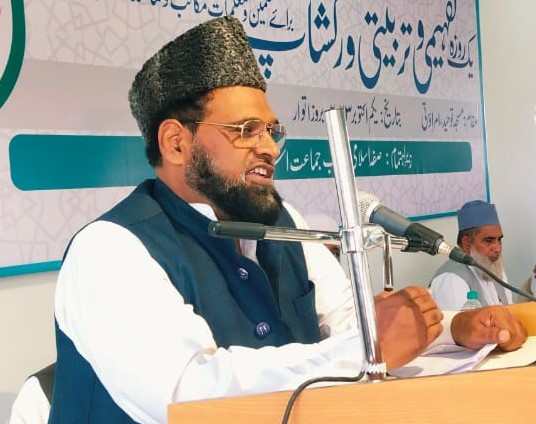Mumbai, Feb. 23: The President of Jamaat-e-Islami Hind (JIH), Maharashtra Maulana Ilyas Khan Falahi has voiced concern over the deteriorating healthcare system in Maharashtra.
In a statement to the media, Maulana Ilyas Falahi said, “We were shocked and greatly concerned over news that more than 600 people fell ill after consuming ‘prasad’ during the religious event in Somthana village, Buldhana. Photos of the victims seeking treatment at a makeshift hospital on the roadside with saline bottles hanging on ropes were quite disturbing. On the same day, a similar incident took place in Ranadegaon of Nandurbar district. This is not expected to happen in a progressive state like Maharashtra.”
The JIH Maharashtra President said, “This incident raises serious questions about the adequacy of healthcare infrastructure and the preparedness of the medical facilities in the region. Have we learned nothing from the coronavirus epidemic? This incident is a reflection of a serious lapse in our healthcare system, and the government must immediately focus its attention on improving the healthcare infrastructure in rural areas in Maharashtra to prevent such incidents from occurring.”
Maulana Ilyas said, “The number of government hospitals has declined by 57% in 10 years. The beds per lakh population have declined from 100 to 60. The government must work towards serving the Right to Quality Health, which is a basic human right. According to a report by Jan Arogya Abhiyan (JAA), ‘Every fourth child in Maharashtra is malnourished and every second woman has anaemia. The state health insurance barely pays for 20% of the patient pool, and the state only allocates 4.1% of its budget to health, lower than 27 other states in the country. The state has 32,000 vacancies in health and medical education departments.”
JIH Maharashtra has demanded that the government increase the health budget and spruce up the number of government hospitals on a war footing. It must also initiate strong social accountability by setting up mechanisms such as social audits or community monitoring. This is the only way to achieve “accessible and affordable healthcare to all – the SDG Goal 3 set by our state.”




